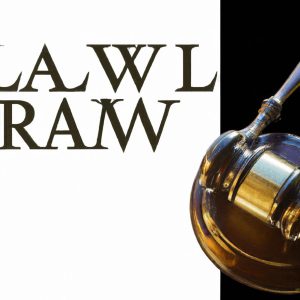Navigating the murky waters of inheritance can be daunting for many individuals. As experienced legal professionals at Morgan Legal Group in New York City, we understand the complexity and confusion surrounding inheritance taxes. This article will explore how much one can inherit from one’s parents without facing the burden of taxes. From estate planning to understanding probate laws, we will provide clarity on the rules and regulations governing inheritance to ensure our readers are equipped with the knowledge needed to protect their assets and secure their family’s financial future.
– Understanding the Federal Estate Tax Exemption and its Impact on Inheritance
When it comes to inheriting assets from your parents, it is important to understand the Federal Estate Tax Exemption and its impact on inheritance. The Federal Estate Tax Exemption is the amount an individual can inherit without paying federal estate tax. As of 2021, the Federal Estate Tax Exemption is $11.7 million per person or $23.4 million for a married couple. If the total value of the assets you inherit from your parents is below this threshold, you will not have to pay any federal estate tax on the inheritance.
Understanding the Federal Estate Tax Exemption
Tthe Federal Estate Tax Exemption can help you better plan for the future and protect your loved ones financially. By taking advantage of this exemption, you can maximize the assets you can inherit from your parents without worrying about hefty tax bills. Proper estate planning and consultation with a knowledgeable attorney can help you navigate the complexities of inheritance tax laws and ensure that your loved ones receive the assets you intend for them to inherit. Contact us at Morgan Legal Group in New York City to discuss your estate planning needs and learn more about how the Federal Estate Tax Exemption impacts inheritance.
– Key Factors Influencing the Taxability of Inherited Assets
In determining how much you can inherit from your parents without paying taxes, it is crucial to consider a few key factors that influence the taxability of inherited assets. One important factor is the estate tax exemption limit, which determines the value of assets that can be passed on tax-free. As of 2021, the federal estate tax exemption limit is $11.7 million per individual, meaning that estate taxes are only owed on amounts exceeding this threshold.
Another factor to consider is the type of assets being inherited. While cash, stocks, and bonds are generally not subject to income tax when inherited, other assets, such as real estate or retirement accounts, may be taxable. Additionally, the decedent and beneficiary relationship plays a role in determining tax liability. Spouses are typically able to inherit assets tax-free, while other beneficiaries may be subject to different tax rates based on their relationship to the deceased.
– Strategies for Minimizing Tax Liability on Inherited Wealth
When it comes to inheriting wealth from your parents, it is essential to understand the tax implications involved. By utilizing effective strategies, you can minimize your tax liability and maximize the amount you inherit. Here are some key approaches to consider:
-
- Estate Planning: Proper estate planning can help reduce the tax burden on inherited wealth. Utilizing tools such as trusts, wills, and gifting strategies can help preserve assets for future generations.
-
- Annual Exclusion Gifts: Taking advantage of the annual gift tax exclusion can help reduce the amount of taxable inheritance. As of 2021, individuals can gift up to $15,000 per year per recipient without incurring gift tax.
– Consultation with Estate Planning Attorneys for Tailored Tax-Efficient Wealth Transfer Plans
When it comes to inheriting from your parents without paying taxes, there are several factors to consider. One key factor is the current federal estate tax exemption, which in 2021 is set at $11.7 million per individual or $23.4 million for a married couple. This means that if your inheritance falls below these thresholds, you may not have to pay any federal estate taxes.
Another important consideration is the annual gift tax exclusion, which allows individuals to gift up to $15,000 per year per recipient without incurring any gift tax. By utilizing this annual exclusion, you can transfer wealth to your heirs during your lifetime in a tax-efficient manner. Consulting with estate planning attorneys can help you create a tailored tax-efficient wealth transfer plan that maximizes the amount you can pass on to your loved ones while minimizing tax liabilities.
Q&A
Q: How much can you inherit from your parents without paying taxes?
A: In the United States, you can inherit up to $11.7 million from your parents without having to pay any federal estate taxes.
Q: Is there a limit to how much money or property you can inherit tax-free?
A: Currently, the federal estate tax exemption limit is $11.7 million per individual. This means you can inherit up to that amount without owing any federal estate taxes.
Q: What happens if you inherit more than the tax-free limit?
A: If you inherit more than the federal estate tax exemption limit, you may owe federal estate taxes on the excess amount. However, it’s important to consult with a tax professional to understand the specific rules and exemptions that may apply in your situation.
Q: Are there any state-specific inheritance tax laws to consider?
A: Some states have their own inheritance tax laws, which may have different exemption limits and tax rates. It’s important to be aware of these state-specific laws when inheriting money or property from your parents.
Q: Are there any ways to minimize or avoid paying taxes on inherited assets?
A: There are various estate planning strategies that can help minimize taxes on inherited assets, such as setting up trusts, gifting assets before death, and taking advantage of tax deductions and credits. It’s best to consult with a financial advisor or estate planning attorney to explore your options.
Closing Remarks
In conclusion, when it comes to inheritance, navigating the murky waters of taxes can be a daunting task. However, with proper planning and understanding of the tax laws, you can maximize the amount you receive from your parents without facing hefty taxes. Remember, seeking professional advice and staying informed about the latest regulations can help you secure your financial future. So, take charge of your inheritance and make sure you are well-prepared for any potential tax implications. Thank you for reading!
Inheriting money from your parents
When it comes to inheriting money from your parents, it can be a sensitive and emotional topic. However, it’s important to understand the financial implications of inheritance, including taxes. In the United States, the federal government imposes various taxes on inheritances, and each state has its own inheritance tax laws. So, the answer to the question, “How much can you inherit from your parents without paying taxes?” can vary depending on a few factors. In this article, we’ll explore everything you need to know about inheritance and taxes, including exemptions, tax rates, and planning options.
Understanding Inheritance Tax
First, let’s clarify what we mean by inheritance tax. An inheritance tax is a tax imposed on the assets someone inherits from a deceased person. It’s different from an estate tax, which is a tax on the overall value of a deceased person’s estate. In most cases, inheritance taxes are paid by the person receiving the inheritance, not the deceased person’s estate. Not all states have inheritance taxes, and those that do may have different rates and exemptions.
Tax Exemptions for Inheritance
The good news is that not all inherited assets are subject to inheritance taxes. The federal government and most states offer tax exemptions for certain amounts of inherited assets. Thanks to the Tax Cuts and Jobs Act of 2017, the current exemption for federal inheritance tax is $11.7 million per individual. This means that if the total value of the assets you inherit is under $11.7 million, you won’t owe any federal inheritance taxes.
State inheritance tax exemptions, on the other hand, can vary significantly. Some states, such as Nebraska, Iowa, and Pennsylvania, have no exemption and impose taxes on all inherited assets. Other states, like New Jersey, have an exemption of $2 million, while Maryland has an exemption of $5 million. You can check your state’s inheritance tax laws to find out the current exemption amount and tax rates.
Types of Assets that May be Taxable
While there are exemptions for inheritance taxes, not all assets are exempt. The types of assets that may be subject to inheritance taxes include:
– Cash and bank accounts
– Real estate
– Investments and stocks
– Insurance policies with a cash value
– Retirement accounts such as IRAs and 401(k)s
– Business interests
– Valuables like jewelry, antiques, or art
The tax rate on these assets can range from 0% to 40%, depending on their total value and the state inheritance tax laws.
Planning Options to Minimize Taxes
If you’re concerned about the potential tax consequences of inheriting assets from your parents, there are a few planning options you can consider:
1. Trusts: One strategy to minimize taxes is to have your parents leave their assets in a trust for you rather than directly inheriting them. Trusts can be designed to reduce tax liabilities and distribute assets in a more tax-efficient way.
2. Gifting: Another option is for your parents to gift assets to you while they are alive. The gift tax exemption for 2021 is $15,000 per individual, meaning your parents can each give you up to $15,000 without incurring any gift taxes. However, keep in mind that any gifts made within three years of your parents’ passing may still be subject to inheritance taxes.
3. Joint Ownership: Jointly owning assets with your parents can also minimize taxes. When you own assets jointly, such as a house or a bank account, your share of the assets will pass to you automatically upon your parents’ passing, without going through probate. This means you won’t owe any inheritance taxes on that portion of the assets.
4. Life Insurance: If your parents have a life insurance policy, the payout from the policy is typically tax-free. If your parents have a sizable estate and want to leave more money to their heirs, they may choose to use a life insurance policy to cover any potential tax liabilities.
Tips for Managing Inherited Assets
Inheriting a large sum of money from your parents can come with its challenges, so it’s important to have a plan in place for managing the assets. Here are a few tips to keep in mind:
1. Speak to a Financial Advisor: Before making any decisions on how to use your inherited assets, it’s essential to speak with a financial advisor. They can help you understand the tax implications and create a plan that aligns with your financial goals.
2. Diversify: Inheriting a large sum of money may seem like a great financial windfall, but it’s essential to diversify your assets. Putting all your money into one investment or asset can be risky. Consider spreading out your inheritance across different kinds of assets to mitigate risk.
3. Budgeting: It’s crucial to create a budget and stick to it. Inheriting a large sum of money can be tempting to spend, but it’s essential to have a plan for the long term. A budget can help you stay on top of your finances and make smart financial decisions.
Conclusion
Inheriting assets from your parents can be a double-edged sword. While it can be a significant financial boost, it’s essential to understand the potential tax implications. Currently, with the federal tax exemption at $11.7 million per individual and varying state laws, the answer to “How much can you inherit from your parents without paying taxes?” is not straightforward. Planning ahead and speaking with a financial advisor can help you minimize tax liabilities and manage your inherited assets wisely.












